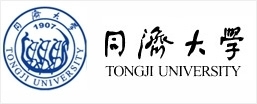
Tongji University is a leading university directly under the State Ministry of Education in China, and is also included in the state-funded Project 211 and the 21st Century Education Rejuvenation Action Plan of China. The history of the university dates back to 1907 when Tongji German Medical School was founded by Erich Paulun, a German doctor in Shanghai. In 1923 it was officially established as a university and in 1927 it was renamed as National Tongji University. It then grew to be a comprehensive university offering programs in science, engineering, medicine, arts and law. In 1952, after the discipline reorganization, Tongji University became the largest and most complete university with strength in engineering, especially in Chinese civil engineering. In 1978, following the Reform and Opening-up Policy in China, Tongji has quickly developed to be a multi-disciplinary university with strength in engineering. Today, with a history of more than 100 years, Tongji has grown into a comprehensive research-oriented university which offers ten major disciplines, namely sciences, engineering, medicine, literature, arts, law, economics, management, philosophy and pedagogy.
Tongji attaches importance to internationalization and has cooperated with Germany, France, UK, USA, Japan, Canada, Italy, Spain and Finland in fields of education, technology and economics. A number of international joint programs have been established between the university and its counterparts in other countries, such as Sino-German College for Graduate Study and Sino-German College of Applied Sciences, which are sponsored by the Chinese and German governments, Sino-Italian Campus which is sponsored by the Chinese and Italian governments, Sino-French Institute of Engineering and Management cooperated with Paris Tech in France, Tongji-UNEP Institute of Environment for Sustainable Development cooperated with UNEP (United Nations Environment Programme) and Tongji-Australian Institute of Technology.
Tongji makes great effort in developing international students’ education. In 2019, registered international students amounted to 3826 in total, and among the long-term international students, about 50% students were to pursue their degrees in various disciplines.
Faculty:
Teaching and research staff: 2708; 15 academicians from Chinese Academy of Sciences, 23 academicians from Chinese Academy of Engineering; 945 professors and 1044 associate professors.
Industrialized Discipline Chain:
In Tongji, there are 35 colleges/schools offering 75 undergraduate majors. It can grant master degrees in 55 broad academic disciplines, together with 15 professional Master’s programs and 26 engineering Master’s programs. It also grants PhD degrees in 31 broad academic disciplines with 3 professional PhD programs and 25 post-doctoral mobile research stations. As one of the national key research centers, the university has 38 key laboratories and engineering research centers either at the state level or provincial level. The two industrialized discipline chains/groups are:Urban Construction & Disaster Prevention, covers disciplines of Architecture, Urban Planning, Civil Engineering, Bridge, Energy, Survey, Road, Geotechnical Engineering and Environment. These disciplines are mainly lectured in Siping Road Campus;
Modern Manufacturing, supported by the National Engineering Center, covers disciplines of Clean Energy Vehicle, synergizing Automobile, Rail Traffic, Traffic Engineering, Software Engineering, Management, Material Science, IT and Mechanical Engineering. These disciplines are mainly lectured in Jiading campus, which is close to Shanghai International Automobile City.
Educational Features and Goals: Social Service and Internationalization:
In recent years, Tongji University has kept exploring and has gradually formed a modern concept on education and school running with Tongji characteristics. Adhering to the education principle that the undergraduate education should be the foundation of the university and the graduate education should be the way to enhance the university, now the university has established the comprehensive quality-oriented education pattern and talent training model that emphasize the integration of “knowledge, ability and personality”. The university sticks to the harmonious development of the four functions of the university, i.e. “talents fostering, scientific research, social service and international communication”. It keeps strengthening its function of serving the society so as to realize the centralization of the university functions. In line with the national development strategy of science and technology and the major demand of the regional economy, Tongji has promoted traditional disciplines to a new level, strengthening the new disciplines, concentrating and simplifying the cross disciplines, and working closely with the industries, so as to form discipline chains and discipline groups that promote the interaction and progress both of the strong disciplines and the weak disciplines, and to build up the discipline system of a comprehensive university. We will constantly promote the education quality, contributing to the national economic and social development.


